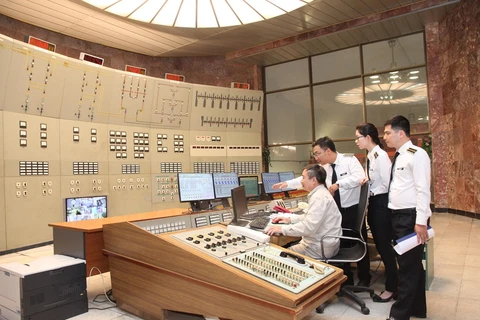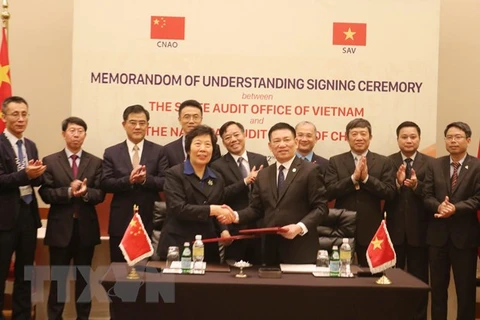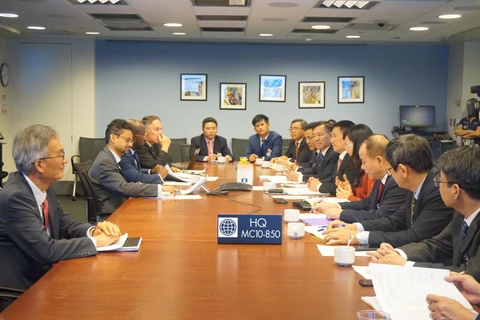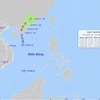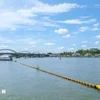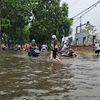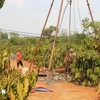 An expert checks wastewater at a wastewater treatment system in the Thang Long Industrial Zone in Hanoi's Dong Anh district (Photo: VNA)
An expert checks wastewater at a wastewater treatment system in the Thang Long Industrial Zone in Hanoi's Dong Anh district (Photo: VNA) Hanoi (VNA) - Experts discussed the role of the state audit in managing waste and wastewater towards sustainable development during a conference held on Hanoi on September 19.
The conference, held by the State Audit Office of Vietnam (SAV), aimed at finding quality and effective measures for environmental audit, analysing and making clear the role of the SAV in environmental protection.
Speaking at the conference, Deputy Director of the SAV Doan Xuan Tien said sustainable development together with environmental protection was not only a national issue, but also a global issue.
In Vietnam, environmental protection was an inseparable part of the country's socio-economic development, he said.
In recent years, the SAV has conducted many audits related to the environment, such as the five million hectares of new afforestation project, the national target programme on clean water and environmental sanitation, and an audit of water issues in the Mekong River.
Besides, it also conducted audits on urban planning, mineral resources management, exploitation and use, and factories’ and industrial parks’ wastewater discharge projects.
Thereby, the SAV has gradually evaluated environmental management and effectiveness.
Experts at the conference said that the quick urbanisation and higher living standards increased the nation’s socio-economic development, but also produced a great amount of waste.
Statistics from the Ministry of Natural Resources and Environment showed that the country discharged 15.6 million tonnes solid waste annually.
Hanoi and Ho Chi Minh City, the country’s two biggest cities, discharge about 80 tonnes of plastic and nylon waste per day.
The country’s plastics and nylon waste occupies about 8-12 percent of daily solid waste.
Nguyen Dinh Hoa, acting Director of the Audit Training School, said many countries pursuing increases in gross domestic product (GDP) faced unpredictable consequences of environmental pollution and climate change.
Economic development but increasing environmental pollution and effects on people’s health is not acceptable, he said.
Luu Truong Khang, deputy chief audit from the SAV, said via the audit, concerned organisations would have the foundation to promulgate, adjust and supplement policies related to waste management and improve work effectiveness.
The audit results helped people become more aware of waste management, and since then give warnings to those intending to harm the environment, he said./.
VNA
